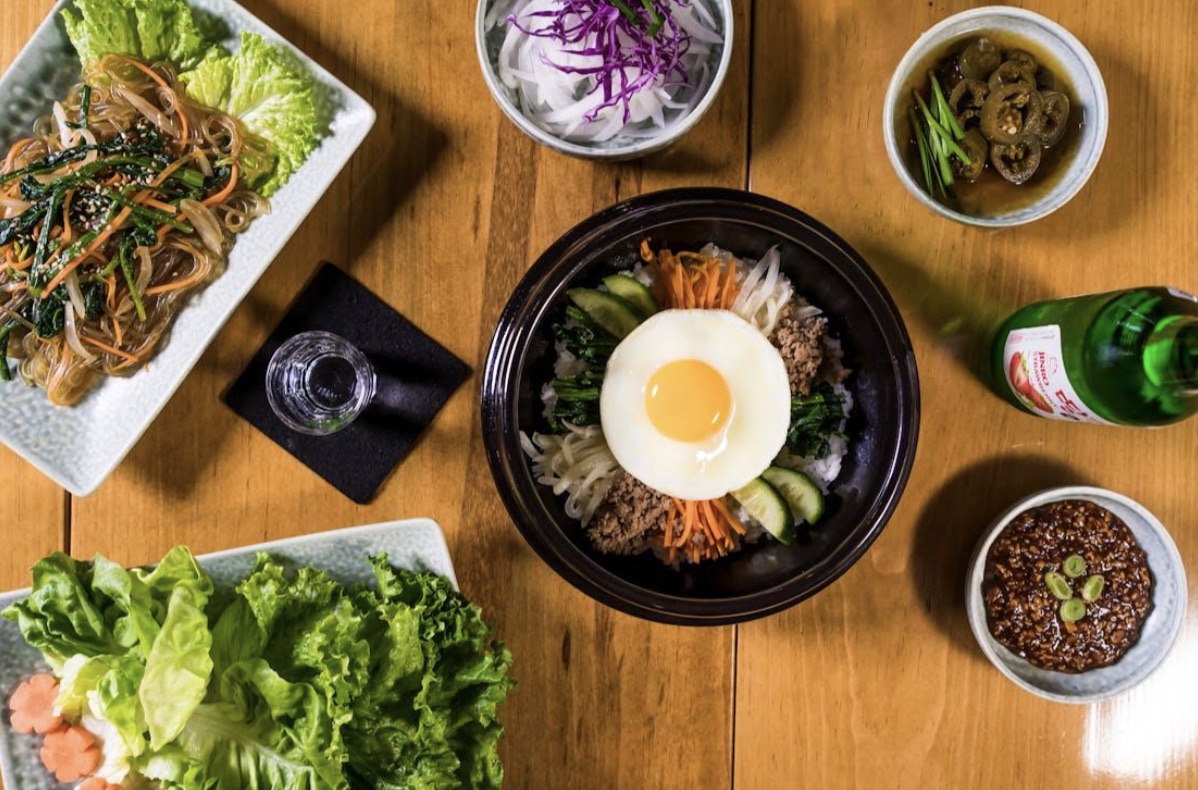With delicacies like kimchi, bibimbap, and Korean BBQ becoming more and more well-known worldwide, Korean food has swiftly become a sensation. The rise of digital platforms and social media has played a pivotal role in this global spread. 2025 will be a crucial year for the globalization of Korean cuisine since platforms like Instagram and TikTok have made it possible for influencers, food bloggers, and tourists to present Korean cuisine to millions of people. This article will explore how social media is reshaping the global appeal of Korean cuisine and how travelers can experience Korea’s food culture firsthand.
The Power of Social Media: Influencers Lead the Charge
Korean cuisine is now primarily promoted on social media. Korean food is becoming more popular thanks to the abundance of local and foreign food bloggers and influencers on YouTube, Instagram, and TikTok. Celebrities like BTS and food influencers such as Maangchi and Mikey Chen regularly showcase Korean dishes, contributing to a surge in global interest.
Particularly noteworthy has been the rise in popularity of Korean BBQ, where guests grill their own meat at the table. The hashtag #KoreanBBQ has over 20 million posts on Instagram alone, showing the widespread fascination with this interactive dining experience. Social media’s visual nature, combined with the appeal of Korean food, has made it an ideal subject for sharing and inspiring food trends worldwide.
Kimchi and Bibimbap: Social Media Fueling Their Worldwide Popularity
In addition to Korean BBQ, traditional dishes like kimchi and bibimbap have found massive followings on social platforms. Korean kitchens are no longer the only places to find kimchi, the traditional fermented vegetable dish. On TikTok, viral videos show how to make kimchi at home, with influencers highlighting its health benefits and versatility in recipes like kimchi tacos and kimchi pizza. Due to its widespread appeal, kimchi is becoming more and more popular in supermarkets and dining establishments across the globe.
Bibimbap, a colorful rice dish with mixed vegetables, meat, a fried egg, and spicy gochujang paste, has also gained significant attention. Its vibrant appearance and balanced flavors make it perfect for sharing on social media, and influencers frequently add their own unique twist to the meal, which helps explain its appeal.
From Screen to Table: The Rise of Korean Cuisine Through TV & Documentaries

Credit: Angela Roma
TV series and documentaries about food are also a significant factor in raising awareness of Korean cuisine worldwide. Korean chefs now have a platform to demonstrate their culinary prowess and the cultural relevance of their dishes, thanks to shows like Netflix’s Chef’s Table: BBQ. By presenting a thorough examination of Korean cuisine and culture, these documentaries introduce a new audience to the nation’s many culinary choices.
The popularity of these documentaries around the world has increased interest in visiting South Korea by encouraging many people to seek out Korean food experiences in person. Travelers can apply for an eVisa to South Korea with ease via ontrailvisa.co.uk, guaranteeing a seamless entrance process to experience the country’s thriving culinary scene.
Beyond the Bite: Immersive Ways to Experience Korea’s Culinary Culture
For those interested in experiencing Korean cuisine culture firsthand in 2025, acquiring a visa is a key step. OnTrailVisa simplifies the visa application process, offering travelers a hassle-free way to obtain their South Korean eVisa. Whether you’re planning to explore Seoul’s street food markets, dine in fine restaurants, or visit regional culinary hotspots like Jeonju and Gwangju, OnTrailVisa guarantees a seamless entry process so you can concentrate on taking in the best of Korea’s culinary culture.
Why You Should Visit South Korea for Culinary Tourism in 2025
In 2025, Korean cuisine will lead the way in culinary tourism. From bibimbap and kimchi to tteokbokki and Korean fried chicken, South Korea offers an exciting range of dishes that appeal to all kinds of food lovers. The nation’s culinary culture has drawn tourists hoping to taste real Korean cuisine firsthand as a result of the growing influence of digital media.
Apart from the gastronomic delights, South Korean food tourism encompasses activities such as cooking lessons, traditional tea rituals, and practical experiences such as making kimchi or bibimbap. These cultural experiences allow visitors to connect with the traditions behind the food and gain a deeper understanding of Korean culture. With plenty to offer everyone, South Korea’s expanding food tourism industry is the ideal travel destination in 2025.

Credit: Credit: Koreacrate
The Final Bite
South Korean cuisine is transforming the global food scene, with digital platforms like Instagram and TikTok playing a major role in its rise. Dishes like kimchi, bibimbap, and Korean BBQ have captured the imaginations of food lovers worldwide, inspiring a new generation of culinary tourists to visit South Korea. Travelers can quickly complete the visa application procedure and start a culinary adventure to enjoy the finest of South Korea’s culinary culture with assistance from visa services. As Korean food continues to gain global traction, 2025 is the perfect time to explore the country’s gastronomic wonders.

